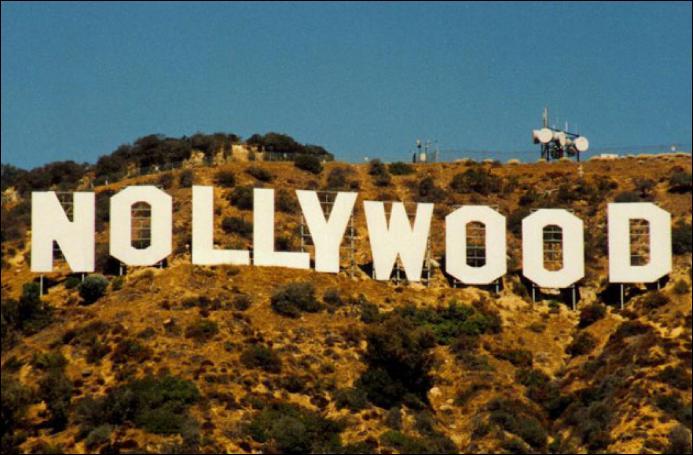
The catastrophic impact of Nollywood on African religion
Everybody loves to watch an immersive movie, especially those with intriguing plots and crystal clear image quality accompanied by superbly mixed sound. The effect Is always an experience that keeps the viewers at the edge of their seats, with hearts beating in sync with the movie's tempo! Ah, that magical feeling.
Nollywood, a term coined to describe the Nigerian movie industry, seems to embody this description with its culturally diverse, artistically ingenious, and emotionally engaging entertainment. Pick a Nigerian movie to watch, and you are sure to see the uniquely fascinating cultural heritage of Nigeria through the eyes of Nigerians.
Yet, it falls apart when the prevalent narrative proceeds to paint the indigenous religion of its people in a bad light.

How it all started
The first film to be screened in Nigeria happened in August 1903. It was screened under the reign of the British colonial masters and was highly influenced by their need to indoctrinate Nigerians with the Christian faith. The making of the film lasted ten days and marked the beginning of film making in Nigeria.
Under the Colonial rule, the colonial film unit(CFU) was established, which used films and documentaries to educate local on better farming practices, wholesome hygiene and most importantly, the Christian faith. But sadly, in trying to spread the new Gospel, the indigenous traditional believes and practices suffered calumny. Slowly but surely, it became a contention of narrative between good and bad religion, Christianity versus indigenous believes.
However, the CFU was dissolved in 1947 and replaced by the Federal film unit(FFU). Sadly this change didn't do much to rectify the issue. The new organisation still maintained the systems and techniques of the colonial film unit, which it replaced.
Again, the federal film unit was dissolved in 1979 to become the Nigerian film unit (NFU). Since then, the Nigerian film industry has consistently released more than a thousand films per year. That figure now stands at 2,500 films per annum, bringing Nollywood to rank third largest film industry in the world after Hollywood(which ranks first), followed by Bollywood(second).
By this time, the light versus darkness narrative had evolved to become an all-out Hero-villain epic of two religions.
Hollywood's negative portrayal of African religion.
Without a doubt, Nollywood and its byproducts have contributed immensely to the international community's perception of our cultures, boosting the country's reputation while simultaneously contributing significantly to the economy's growth.
Despite that, the industry has consistently projected images such as ritualised killings, violence and the Afrocentric phenomenon 'Juju' that counter the excellent image it aims to propagate in the first place. One way it does this is by centring its storyline around rituals by traditionalists often involving animal (and sometimes human) sacrifices. A typical example was somewhat of a horror-thriller movie titled 'one chance' in 2006. The narrative was in this wise: unsuspecting passengers would board a bus unknown to them, is operated by a gang of ritualists. The ritualists would then use 'juju' to put them all to sleep and then drive them to their den for use as ritual sacrifices.
Films with similar storylines such as blood money, end of the wicked and sakobi: the snake girl have since flourished, taking cues from the runaway hit 'living in bondage', which was produced between the years 1991-1992.
These supernatural themes seemed to appeal to viewers and contributed to their success.
On the other hand, Nollywood movies hardly acknowledge the good of traditional indigenous practices and beliefs. Only once in a while will you come across a film where the traditionalist harnesses the power of herbs and vegetables to heal sick persons or a befitting portrayal of the numerous cultural festivals proudly displaying the rich Nigerian heritage without a negative undertone.
Naturally, people learn through two mediums: by personal experience and through the media. This phenomenon is expounded in a theory called the 'cultivation theory'.
The cultivation theory
Propounded by professor George Gerbner in the 60s', the cultivation theory came to be by testing the effect of media on viewers, and primarily how exposure to violence affects the behaviour of an audience. The result of the tests showed that 'the greater the time spent by viewers watching television simulated environments, the more they begin to believe that the real world aligns with the reality suggested on the television'.
Consequently, characters played by movie actors tend to stick with them inadvertently. Take the case of Kanayo.O.Kanayo, a Nollywood actor instance who, throughout his acting career, played the role of a ritualist in many films. This has unwittingly created a negative mental image of his good character in people's minds. The same can be said of Nigeria's image to the world by the films we produce.
Tackling the dilemma
The solution to every problem is first to acknowledge that there is a problem requiring a solution. Here are possible solutions to the problem of negative portrayal of African religion:
Nollywood Producers, directors, actors, and everyone involved in the production of Nigerian movies need to realise that good and evil is universal and not a quality to ascribe to a particular cadre of people. They should also understand that religion plays no role in the disposition of a person. To be good or evil is an individual's choice and not a function of religion.
The activities of extreme violence can and should be closely monitored by an active censors board. This is not to prevent freedom of artistic expression but to make sure that in the event that violence or the supernatural is to be portrayed, they do so with good initiative and never go overboard doing it. This is to preserve a good memory of our heritage to generations yet unborn.
Although the National film and videos censors board (NFVCB) was initially established to fulfil this role, in light of the distressing situation, a better performance from the board can help rectify the issue.
In conclusion, the Nigerian film industry, Nollywood, has experienced immense growth partly due to the ingenuity of Nigerian film producers to locate the sweet spots of the viewers (which happens to be the supernatural and religious genre, mostly!) and exploiting it beautifully—churning out thousands of films yearly based on viewers preference. Yet, the collective Image of the citizens of Nigeria would benefit significantly if the films are made deliberately and painstakingly produced to portray our beautiful religion, for our sakes and the sakes of coming generations.
Written by Simeon Samuel for CoolAfricanMerch
